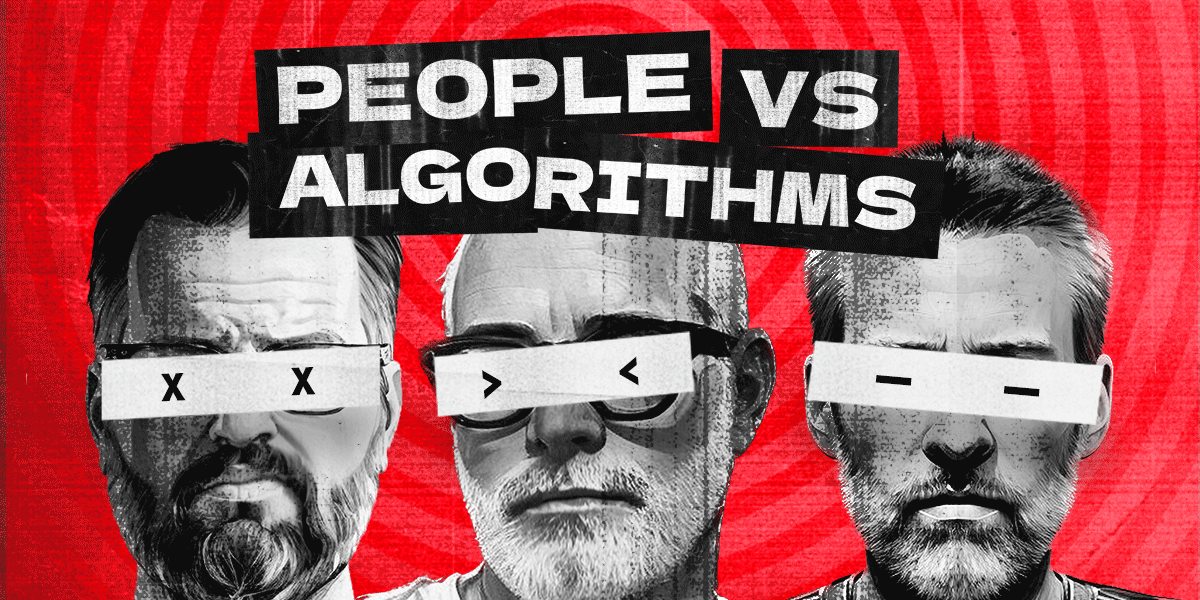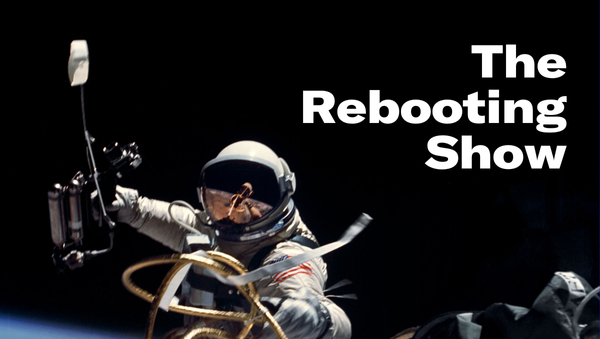The change agenda
The messy business of changing course
This week, some notes on recent conversations around structural change – and a podcast about change at CNN. First, a message from TRB supporter EX.CO.

The must-have resource for publishers

Designing a video monetization strategy can be overwhelming but the team at EX.CO has put together this blueprint to simplify your path to video success. “The Publisher’s Blueprint to Achieving Successful Video Monetization at Scale” includes simple steps guaranteed to maximize your video monetization, including the necessary materials and techniques you’ll need to assemble your program and grow.
No publisher is too small or under-resourced to capitalize on video. Whether you’re launching a new program from scratch, or looking to fine-tune and scale an existing one, this blueprint will optimize your video monetization while providing a best-in-class user experience.
The change agenda
I went to a great dinner party last night. Troy organized this “supper with friends” at one of those Japanese restaurants where the American staff shout, “Irasshaimase!” at you when you enter. It faithfully reproduces one of those Japanese-style whiskey bars with the expensive vintage sound system. The good news about the extinction event is they still serve ample tuna sashimi and karage.
The room was filled with those running media companies or found better paths in finance, tech and consulting.
Sure, one media veteran turned investor joked about it being a “funeral,” considering the state of the industry. That’s unfair. There’s certainly reset expectations; vanishing ad revenue is unlikely to come back for news publishers. I was discussing with a lifestyle publisher the new reality of shifting models midstream. It meant a lot of cutting and more is to come. The big layoffs aren’t the only cuts happening.
Change is necessary and messy. A sales team oriented to getting IOs from agency teams is unlikely the right one for a business that’s pivoted to client-direct agency services. This is something I’ve heard a lot about recently. Publishers are beyond nostalgia or the blame game, and looking realistically at their businesses. For the VC-backed publisher that’s the reality that investors are getting 1-1.5x because there is no billion-dollar exit on the horizon. Instead it’s the messy march to 30% margins. That means cutting.
Arguably the reorganization happening now will pale in comparison to the necessary reorientation required. Troy has a good overview of what’s to come.
The Nvidia-powered revolution puts a layer of intelligence on top of all information, and all the APIs that power your modern digital world. AI forces us to stop thinking about pages. Instead we will now build around smart machines who talk back with text and images and video. Soon these machines will do more than answer. They will see and hear for us too.
I don’t sense the panic about the implications of this, if only because the past year-plus has been an exercise in triage. One media veteran I met for coffee sensed some paralysis inside organizations mired in cost cutting and reorgs rather than establishing a growth agenda. I’m more convinced that wholesale change will come from the edges.
I think it’s because most publishing has gone through several of these cycles, even if this one is different. Yes, Perplexity shows just how much the search experience will inexorably change. And yet, as Dotdash Meredith CEO Neil Vogel pointed out on a recent PvA episode, Bing has lost share since integrating AI. Still, it risks whistling past the graveyard to not prepare for the a drastic drop in search traffic. Gartner expects 25% by 2026.
I'm interested in TollBit because it breaks out of the typical confines of existing media monetization mechanics by putting a price on bots accessing publisher content. As crazy as it sounds, perhaps micropayments will finally work when it's the bots who have to pay up. The interesting angle to this as it was explained to me is Tollbit will allow publishers to collect fees from bots for their fresh content, not just the library.
One exec referred to the maxim that we tend to underestimate change in the long run but think it will happen more quickly than it does. Human habits are difficult to change. I was told AOL still has $200 million in subscriber revenue. $200 million!
I tend to see people and organizations react to the need for change in a few ways: 1. Denial; 2. Bargaining; 3. Capitulation. There are still pockets stuck in the denial phase. A symptom of this is pointing to the success of The New York Times. While I applaud its pivot to DTC, I also recognize that the success has not been replicated by a single other news organization. In fact, the Times has gone national to own a niche of upper-middle-class progressives. As my coffee companion noted, if you move to Denver as a progressive, you’re getting a subscription to the Times, not the Denver Post.
CNN will be a classic case study in change. Mark Thompson has a massive challenge on his hands. And on the one hand, it’s an enviable one. This isn’t entering into a situation like Vice, which never made money and was best at hemorrhaging it. CNN is not that. It had $800 million in EBITDA last year.
But watching CNN feels like it’s from a time capsule now. Its Super Tuesday coverage drew all of 277,000 viewers. The repricing of on-air talent will be brutal but also overdue. I had a conversation with a fellow media obsessive, and neither of us could even name who hosted the CBS Evening News.
CNN is the original ambient media: doctor’s offices and airports. The reset in expectations means coming to terms with the place media brands truly play in people’s lives in a chaotic Information Space that will only get more chaotic. As Troy suggests, perhaps the path for CNN is to embrace this role as ambient media
Many expect Thompson to enact the same playbook as he kicked off at the Times, which has become something of a darling because it has mastered a DTC business model. Different brands require different strategies. CNN has flirted with DTC and always pulled back. It’s hard to imagine after blowing up CNN+ after a month that it would return to that path.
The memo Thompson released about the path forward offers few clues about the important issues in favor of the typical platitudes to multiplatform and the corporate party favorite: future proofing. The caution shows the challenge of reorienting these organizations. I suspect Ted Turner would have the latitude to take bolder steps.
I like Troy’s provocation that CNN should lean into its roots by embracing technology shifts as it did in its founding. Why not use the chaos that will be caused by AI to become the ultimate ambient media? That’s more interesting than the endless cost cutting.

This week, we discuss how to turn the ship at two very different companies facing different challenges: CNN and Google. At CNN, former New York Times CEO Mark Thompson is looking to reinvent the still very profitable broadcaster into a more nimble, digitally focused operation as its viewership and cultural importance fade. Google is facing its biggest threat yet in the form of AI. Plus: nostalgia for websites, invisible paywalls and Substack’s next chapter.
Listen on Apple | Spotify | Other podcast platforms




